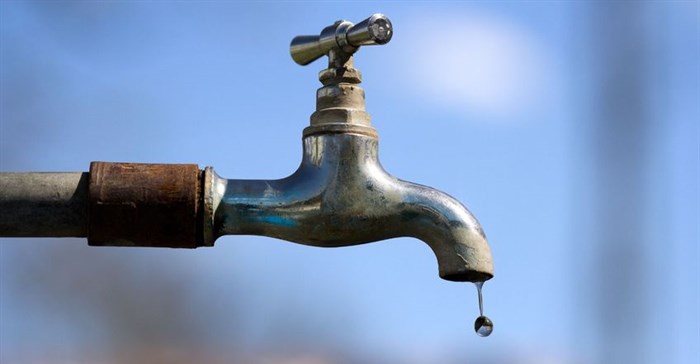Water and Sanitation Minister Nomvula Mokonyane has stressed the need to urgently maintain infrastructure, repair leaks rapidly and to operate water systems more efficiently in South Africa, if the country wants to curb losing R7bn annually to water losses.
Addressing the Western Cape Water Indaba at Goudini Spa near Worcester on Tuesday, 16 May, Mokonyane painted a grim picture of the country’s water resources, while urging for joint action to look after its water infrastructure.
“The situation in the (Western Cape) province is dire and as a department working with the province we are committed to accelerating the Berg River-Voelvlei (Phase 1) augmentation scheme to allow us to divert surplus winter water into the Voelvlei Dam, the Table Mountain Group Aquifer, the promotion of water re-use technologies, rain water harvesting and importantly, draw on our experiences in commissioning the Richards Bay desalination plant to consider possible similar solutions for the Western Cape,” she said.
Multi-stakeholder inputs
The indaba, a joint meeting between the national and provincial governments, is expected to provide multi-stakeholder inputs on the current drought gripping the province and to provide professional inputs into the solutions necessary to create a sustainable water future for the province.
Mokonyane said the indaba follows a meeting held in March between the provincial and national governments in an attempt to assess the Western Cape drought situation and to map out interventions necessary to guarantee the current and future water supply of the province in the midst of extreme drought that has affected the province.
“Dam levels in the province are at 20.1% with an unoptimistic weather outlook noting that the winter rainfall season may not yield enough rain to immediately improve the dire water situation of the province,” she added.
Highlighting the need for behavioural change, Mokonyane stressed that taking a shower is not the same thing as being in a recording studio, “get in and get out”, she said.
Fast-tracking solutions
Mokonyane said a team comprising officials from the Department of Water and Sanitation, the National Disaster Management Committee working with the province and local government has been actively engaged in ensuring that short- to medium-term solutions are fast-tracked to guarantee the water security of the province in the long-term.
The minister also encouraged municipalities to intensify their operations and maintenance work on water and sanitation infrastructure in the province. “Currently as a country we lose over R7bn in water losses and must improve our ability to maintain our infrastructure, to repair leaks rapidly and to operate our water systems efficiently to ensure we save what we have and use it wisely,” the minister said.
Western Cape Premier Helen Zille said, in turn, that the water crisis creates an opportunity for the country to emerge as the fastest growing water economy in the world.
She stressed that the current water crisis must be handled in the exact same way as the electricity crisis was handled, and encouraged the different spheres of government, businesses and other stakeholders to work together to find innovative solutions.
Drought and SA economy
Highlighting the impact of the drought on South Africa’s economy, and especially the Western Cape’s agricultural sector, Zille said the agricultural sector has been hard hit with 200,000-tonnes of wheat lost in the 2015 winter, and a 15% decrease in fruit production in 2015/16.
“Some 30,000 animals have also been sold due to farmers battling to feed their livestock.
“Agricultural economists are projecting a R112m decrease in gross value added in the sector, and a possible drop of 1,728 in the number of available seasonal work opportunities,” the premier added.
Zille highlighted crucial interventions which required cooperation across all spheres of government.
These included the maintenance and replacement of bulk infrastructure, extension of the Voëlvlei and Clanwilliam dam walls; behaviour change; and dual water systems‚ allowing non-potable water to be used for flushing in new developments.
“There is no doubt that we are in a race against time but with the right policies and implementation, we will emerge with the necessary solutions and prevent a possible disaster going forward,” she said.














































